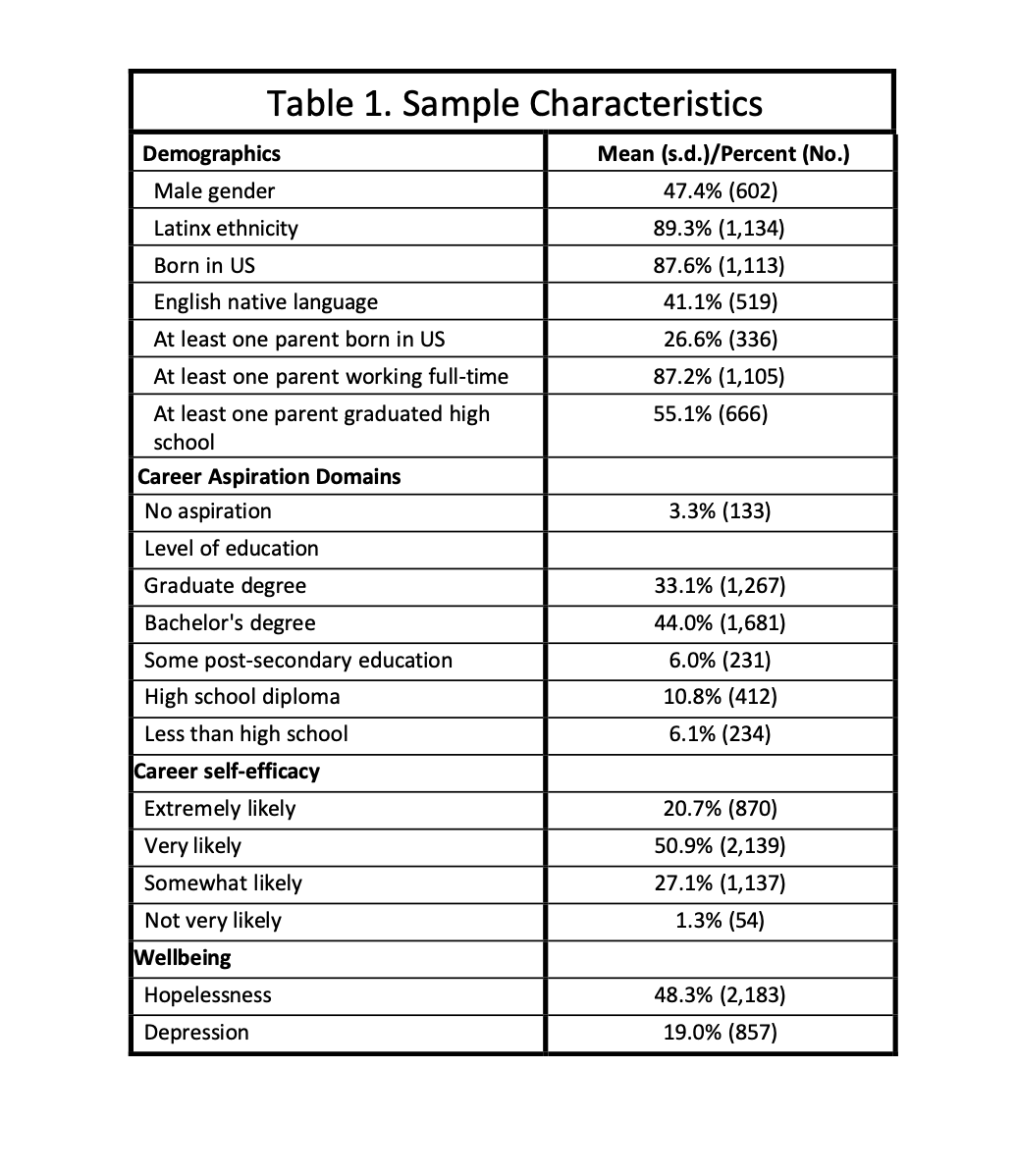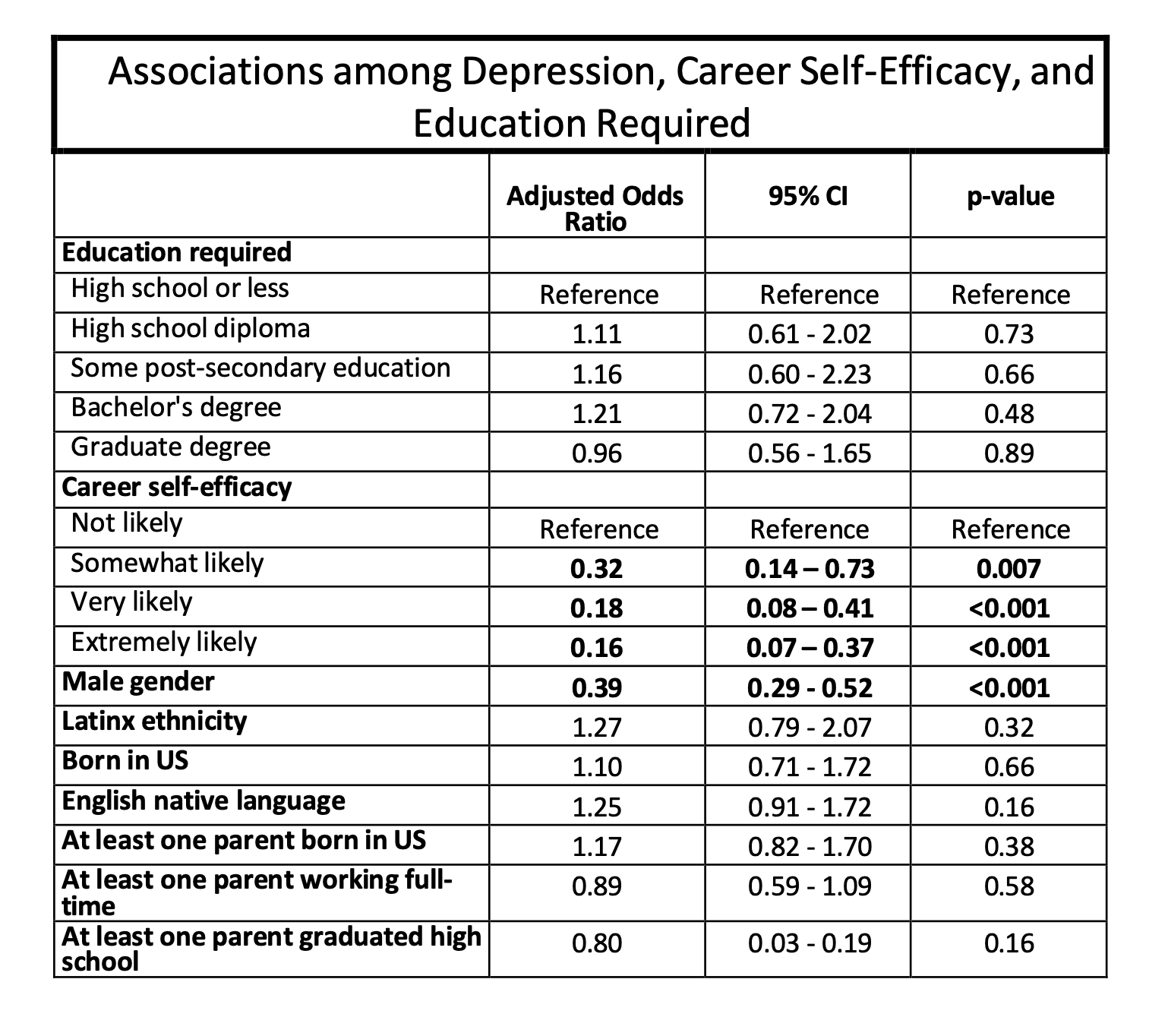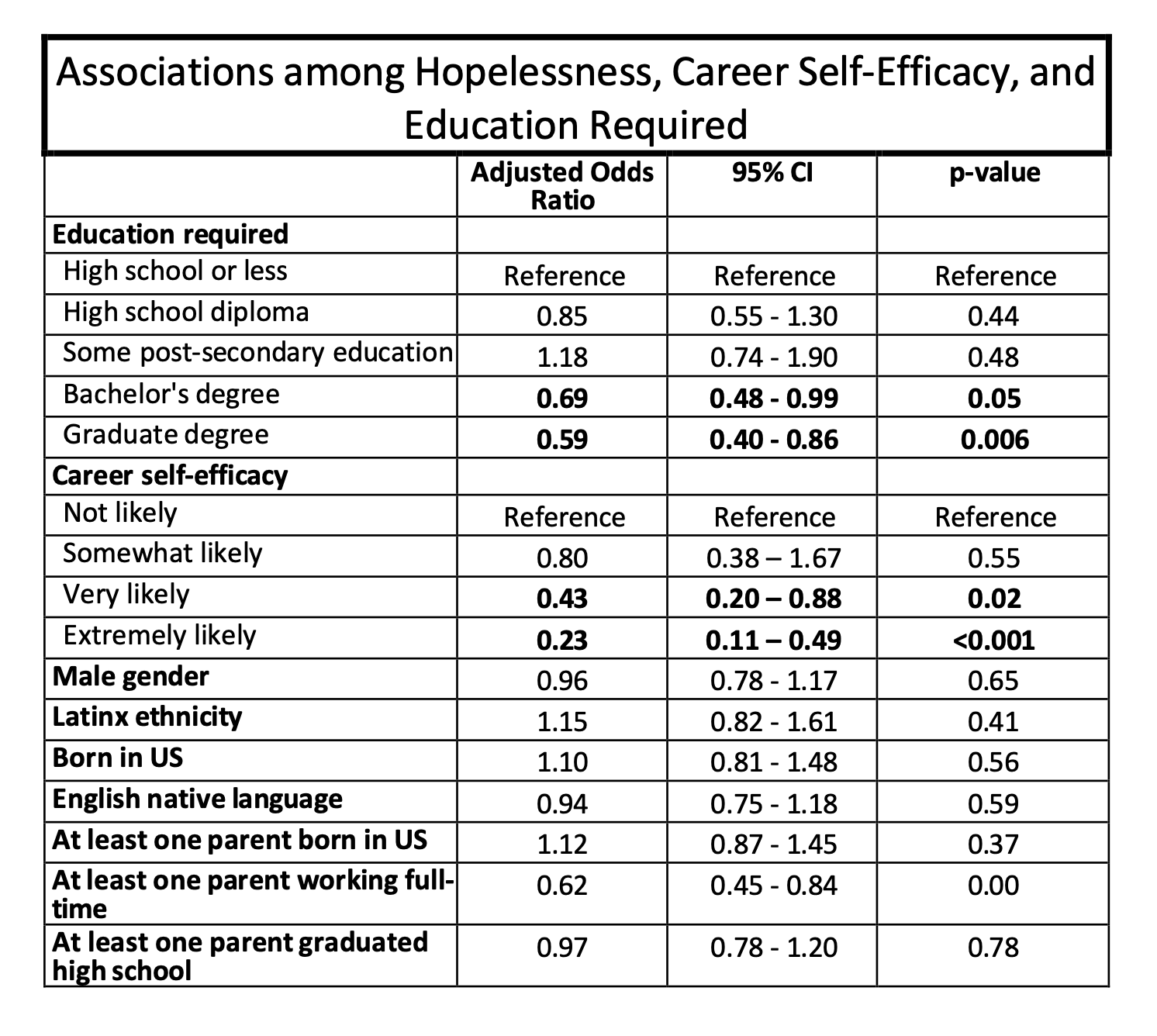Health Services Research
Session: Health Services Research 1: Workforce
287 - From Doubt to Hope: The importance of career self-efficacy as a predictor of adolescent depression and hopelessness
Saturday, May 4, 2024
3:30 PM - 6:00 PM ET
Poster Number: 287
Publication Number: 287.1298
Publication Number: 287.1298
.jpg)
Pranav Iyer (he/him/his)
Volunteer
University of California, Los Angeles David Geffen School of Medicine
Presenting Author(s)
Background: Prior studies show adolescents’ career aspirations provide insight into their wellbeing and hopefulness about the future. How likely adolescents feel that they can achieve their career goal (career self-efficacy), has not been examined previously.
Objective: We sought to examine career aspirations and career self-efficacy and their association with depression and hopelessness among adolescents from low-income communities in Los Angeles.
Design/Methods: We conducted a secondary analysis of longitudinal surveys of 1,270 participants in the RISE Up study, a longitudinal study of adolescents designed to examine the effect of school quality on adolescent health. Respondents completed periodic surveys at grade 9, 10, 11 and 12. We asked participants “what do you want to be when you grow up?”, their perceived likelihood of fulfilling their stated career aspirations (career self-efficacy), and the Adolescent Hopelessness and CES-D Depression scales. We used Department of Labor statistics to categorize career aspirations by level of education required to pursue that career. Hierarchical mixed effects logistic regressions accounted for socio-demographics, repeated measures, and clustering within school. Interaction terms explored moderation by gender.
Results: Averaged across all time points, the amount of education required to pursue each stated career was a college degree (77.1% of respondents), some post-secondary education (6.0%), high school diploma (10.8%), and less than a high school diploma (6.1%). When asked how likely they felt they were to achieve their career goal, 71.6% felt extremely or very likely, while 28.4% felt somewhat or not likely. Higher levels of career self-efficacy were associated with lower odds of hopelessness (AOR 0.23 p< 0.001 for extremely likely and AOR 0.43, p = 0.02 for very likely vs. not likely) and depression (AOR 0.16 p< 0.001 for extremely likely, AOR 0.18, p< 0.001 for very likely, and AOR 0.32 for somewhat likely vs. not likely). In contrast, choosing a career that required more education was only associated with hopelessness (AOR=0.59, p< 0.01 for graduate degree and AOR 0.69 for bachelor’s degree vs. less than high school). Associations were not moderated by gender.
Conclusion(s): Adolescent career self-efficacy was more strongly associated with depression and hopelessness than career aspirations, as measured by amount of education required for the career. Pediatricians might consider asking about career self-efficacy to gain better insight into adolescent wellbeing.



